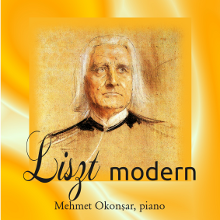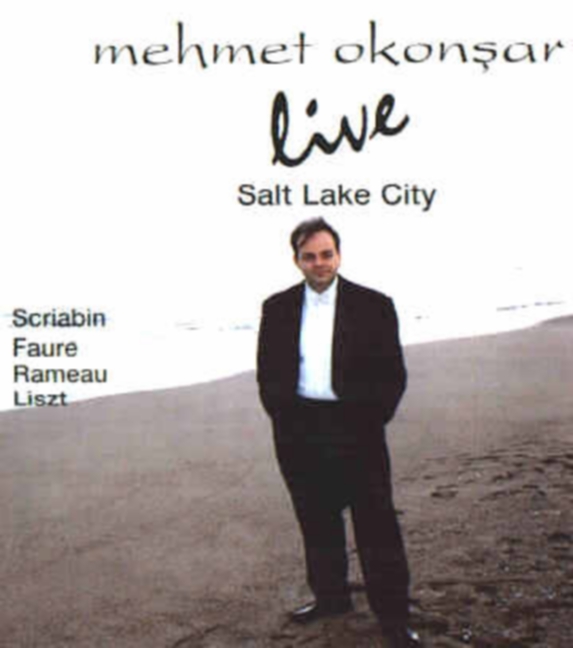
The "Doctor of Doctors" Ibn Sina, His Life and Work
Short
overview on the life and contributions of Ibn Sina.

J.S. Bach "Musikalische Opfer"



Recital: "Live at Salt Lake City"

J.S. Bach The Goldberg Variations

Piano Solo Improvisations: "Shadowy Arcade"
All CD's can be auditioned entirely and freely at their respective pages. Click on the images.

J.S. Bach The Goldberg Variations

Piano Solo Improvisations: "Shadowy Arcade"
All CD's can be auditioned entirely and freely at their respective pages. Click on the images.
He is known as Avicenna in the western world. He was possibly the finest of this Muslim savants who within the first couple of century from the Islamic calendar, elevated the status of Islamic learning very high.
He was born at a time of instability and decentralization within the Muslim world. This affected ibn Sina whole his existence. He moved frequently, hunting for a stable, well-paid position. At various occasions, he labored like a political administrator, court physician, soldier as well as periodic outcast and prisoner.
No single nation can claim the loan or blame for modern scientific advances. Human understanding is really a storehouse by which all nations around the globe have led their share. And among such great contributing factors stand the immortal title of Ali Husein ibn Sina, an excellent physician.
Ibn Sina had many new scientific ideas. For example, in his twenties, he was the very first we know about, who recognized that "impetus is proportional to weight x velocity." This is actually the fundamental equation that describes momentum today.
He also contended that an object in vacuum (no pressure) would move without slowing down also this is true.
Ibn Sina also stated that researchers would not flourish in turning metals like lead or copper into gold, despite the fact that many researchers were trying to get it done.
He grew to become so famous as a physician that the Emir of the Samanids (Nur ibn-Mansur), when sick found him. When he healed the emir, he gave him employment as his personal physician, Ibn Sina was still being only 18 years of age. Because of his position as the Emir's personal physician, Ibn Sina reached read many rare books within the Emir's library.
Ibn Sina's chief work, "Canon's of drugs" was translated to Latin in 1187 and shortly grew to become the reference text book for medical education in Europe. Within the last three decades from the 15.th century this book passed through 16 countries and languages of which 15 were in Latin and one in Hebrew.
Ibn Sina was the first one to uncover that water may be the vehicle for harmful bacteria transportation and thus it may be accountable for multiplication of numerous illnesses. Ibn Sina might have been the very first person to understand you could catch illnesses like measles or smallpox from other people (though he did not learn about bacteria, since there were not any microscopes yet).
Ibn Sina authored more than a hundred treatises covering a number of subjects for example religion, philosophy, mathematics and astronomy.
Like a chemist, Ibn Sina was among the first scientists to disagree on the transmutation of metals (i.e. turning iron into gold). He devised the total process of distillation to create the acrylic and therefore he's regarded as like a pioneer of aromatherapy.
Four of his many writings, for instance on the refutation of alchemy, were translated in Latin, this had a great impact on the medieval chemists. He was the very first researcher to make use of air thermometer to appraise the temperature. He provided a classy reason behind the development of rainbow. The rainbow, he stated, is created through the dispersion of sunlight through the fine contaminants of rain water, the dark cloud he thought is simply a screen for that rainbow to look, which now that we know holds true.
Ibn Sina also led to mathematics, physics, music along with other fields. He described the "casting from nines" and it is application towards the verification of squares and cubes.
He earned several astronomical findings, and devised a contrivance like the vernier, to improve the truth of instrumental blood pressure measurements.
Ibn Sina also authored medical books in Arabic. Doctors like Maimonides used them all around the Abbasid Empire. Once they have been converted into Latin the work spread throughout Europe and during the Dark Ages.
About the philosophical side, Ibn Sina combined the thoughts of Aristotle and the neo-Platonism. He attempted to reconcile philosophy using the religion of Islam.
Ibn Sina refused the presence of the person soul. He also doubted that God had any curiosity about anyone person. Ibn Sina also thought that there is no creation around the globe and thought that there is a dualism of mind and matter. Matter was passive, and creation have been an action of instilling existence in to the passive substance. Only God didn't have this dualism.
When it comes to metaphysics, Ibn Sina constitutes a distinction between two concepts: essence and existence. Essence views just the character of things, and should be thought about aside from their physical and mental realization. This distinction is applicable to everything but God, that he identifies as the first cause and for that reason being both essence and existence.
He also contended the soul is incorporeal and can't be destroyed. The soul, in the view, is definitely an agent with choice nowadays between good and evil, which results in reward or punishment.
Despite glorious tributes to his work, Ibn Sina isn't appreciated within the Western world today and his fundamental contributions to medicine and also the European reawakening goes largely unacknowledged. However, within the museum at Bukhara, one may find shows showing a lot of his documents, surgical instruments in the period and works of art of patients going through treatment. A remarkable monument towards the existence and works from the scientist who grew to become referred to as "physician of doctors" still stands outdoors the Bukhara museum and the portrait dangles within the Hall from the Faculty of Medicine, College of Paris.
Usage rights:
You can use
this article under the Creative Commons License CC-BY. This license
lets you distribute, remix, tweak, and build upon my work, even
commercially, as long as you credit me, by displaying the information
on me given below verbatim for
the original article.
Mehmet
Okonsar is a
pianist-composer-conductor and musicologist. Besides his international
concert carrier he is a prolific writer. Founder of the first classical
music-musicology dedicated blog-site: "inventor-musicae"
as well as the first classical-music video portal: "classical videos".
